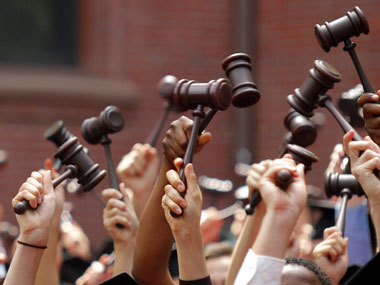The Supreme Court on Thursday declared to right to privacy as a Fundamental right under the Constitution. A nine-judge constitutional bench headed by Chief Justice JS Khehar ruled that right to privacy is protected intrinsically as part of rights guaranteed under Article 21 of the Constitution.
Breaking: Right To Privacy is a fundamental right :SC
— Live Law (@LiveLawIndia) August 24, 2017
Privacy is protected under Article 21 and Part 3 of Constitution :SC
— Live Law (@LiveLawIndia) August 24, 2017
Delivering the verdict, the bench observed that privacy is protected under Article 21 and Part 3 of the Indian Constitution. [caption id=“attachment_3968007” align=“alignleft” width=“380”] Representational image.[/caption] The ruling will have a bearing on 24 other cases challenging the validity of the Aadhaar scheme on the grounds of it violating the right to privacy. Others members of the bench comprising Justice J Chelameswar, Justice S A Bobde, Justice R K Agrawal, Justice R F Nariman, Justice A M Sapre, D Y Chandrachud, S K Kaul and S Abdul Nazeer also shared the same view. Reading out the
“operative portion” of the judgment, Khehar made following observations: - Decision in MP Sharma case overruled. - Decision in Kharak Singh case, to the extent it says Right to Privacy is not part of Right to Life, is overruled - Right to Privacy is an intrinsic part of life and personal liberty under Article 21. - Decisions subsequent to the Kharak Singh case verdict which held privacy as part of right to life are correct. - A number of writ petitions were tagged along with Justice K Puttaswamy’s petition on Aadhaar, which led to the constitution of this 9 Judge Bench. A slew of Senior Advocates had appeared for various parties in the case. Here is the full text of the judgment in the case: Part 1:Part 2:
Click here to follow live updates on the Supreme Court verdict


)




